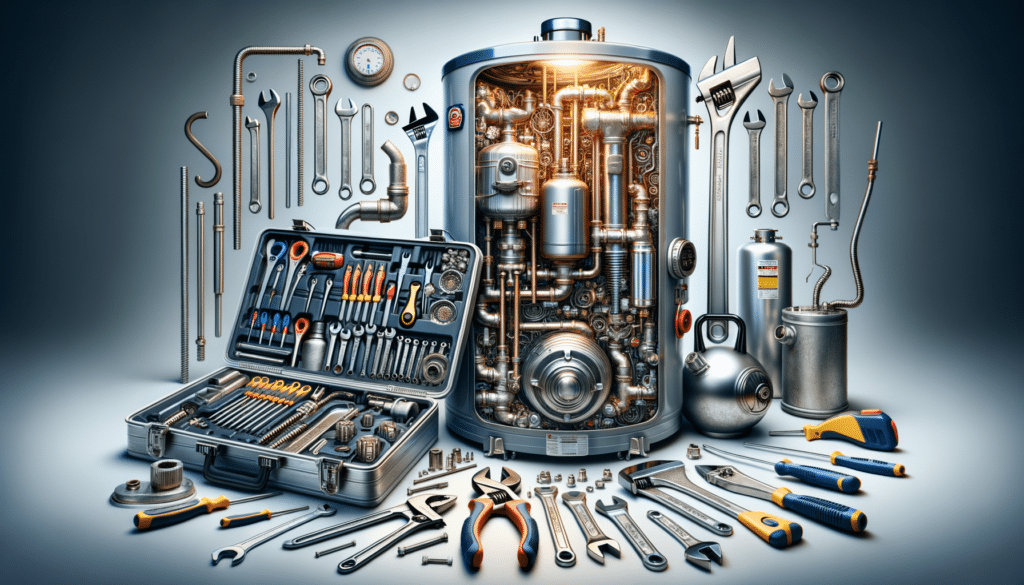Understanding the Basics of Water Heaters
Water heaters are essential appliances in most homes, providing the comfort of hot water for bathing, cooking, and cleaning. Understanding how they work can help you identify problems when they arise. There are several types of water heaters, including traditional tank models, tankless systems, and solar-powered units. Each type has its own set of components and operational mechanisms.
Traditional tank water heaters store and heat a large volume of water using either gas or electricity. Tankless water heaters, on the other hand, heat water on demand, offering energy efficiency and space-saving benefits. Solar-powered water heaters use energy from the sun, making them a sustainable choice.
Key components of a water heater include the thermostat, heating elements, and anode rod. The thermostat controls the water temperature, while the heating elements or burner are responsible for heating the water. The anode rod helps prevent corrosion inside the tank. Regular maintenance of these components can extend the life of your water heater and ensure optimal performance.
Common Water Heater Problems and Their Causes
Water heaters can experience a range of issues, from minor inconveniences to significant malfunctions. Common problems include:
- No Hot Water: This could be due to a faulty thermostat, broken heating elements, or a tripped circuit breaker.
- Inadequate Hot Water: Sediment buildup in the tank can reduce heating efficiency, leading to insufficient hot water.
- Leaking Water Heater: Corrosion, loose connections, or a damaged tank can cause leaks.
- Strange Noises: Rumbling or popping noises often indicate sediment accumulation at the bottom of the tank.
- Discolored Water: Rusty or cloudy water can be a sign of corrosion inside the tank.
Identifying the root cause of these issues is the first step in effective repair. Regular maintenance, such as flushing the tank and inspecting the anode rod, can prevent many of these problems.
DIY Water Heater Repair and Maintenance
While some water heater repairs require professional assistance, many can be tackled by homeowners with basic tools and knowledge. Here are some DIY maintenance tips:
- Flushing the Tank: Regularly flushing the tank helps remove sediment buildup, improving efficiency and extending the heater’s lifespan.
- Checking the Anode Rod: Inspect the anode rod every few years and replace it if it’s heavily corroded to prevent tank rust.
- Testing the Pressure Relief Valve: Ensure the valve is functioning correctly to prevent pressure buildup, which can lead to leaks or tank bursts.
- Insulating the Tank: Adding insulation can reduce heat loss, improving energy efficiency and reducing utility bills.
Before attempting any repairs, ensure the power supply is turned off to avoid electrical hazards. If you’re unsure about any repair, it’s best to consult a professional.
When to Call a Professional
While DIY repairs can be effective for minor issues, certain situations warrant professional intervention. These include:
- Complex Electrical Issues: Problems with wiring or electrical components require a licensed electrician.
- Gas Water Heater Repairs: Gas leaks or burner issues should be handled by a qualified technician to ensure safety.
- Severe Leaks: If the tank itself is leaking, replacement may be necessary, which is best handled by a professional.
- Persistent Problems: If issues persist despite DIY efforts, a professional can diagnose and fix the underlying problem.
Hiring a professional ensures repairs are done safely and correctly, preventing further damage and extending the life of your water heater.
Choosing the Right Water Heater for Your Home
When replacing a water heater, selecting the right model is crucial for efficiency and cost-effectiveness. Consider factors such as:
- Energy Source: Choose between electric, gas, or solar-powered models based on availability and cost.
- Size and Capacity: Ensure the water heater can meet your household’s hot water needs.
- Energy Efficiency: Look for models with high energy efficiency ratings to save on utility bills.
- Cost and Warranty: Consider the initial cost and warranty offered to ensure long-term savings and protection.
Consulting with a professional can help you make an informed decision, ensuring you choose a water heater that meets your needs and budget.





